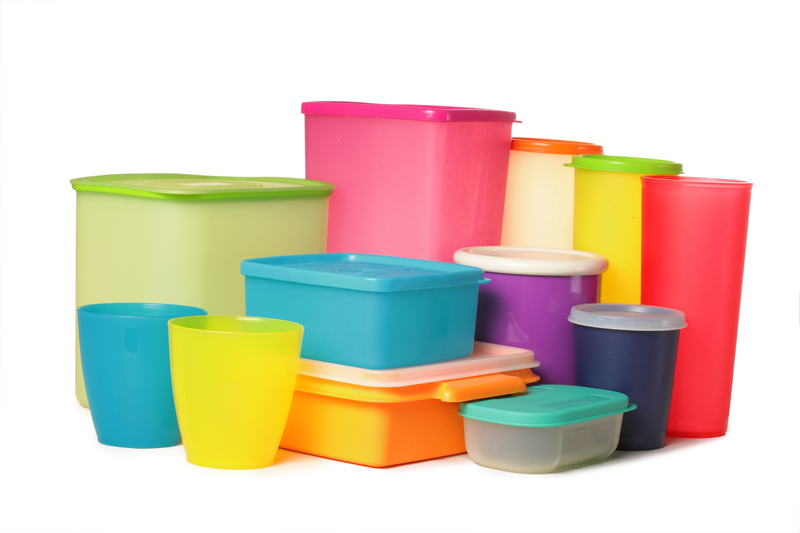Smart Bulk Waste Strategies That Won't Strain Your Wallet
Dealing with large amounts of waste can be overwhelming, especially when you're on a budget. Whether you're renovating your home, clearing out your attic, or managing daily waste at a business, finding affordable bulk waste solutions is crucial. In this comprehensive article, we'll present a variety of smart bulk waste strategies to help you dispose of large quantities of rubbish efficiently, responsibly, and without breaking the bank.

What is Bulk Waste?
Bulk waste typically refers to oversized or high-volume items that aren't regularly collected with standard residential or commercial garbage. Examples of bulk waste include:
- Old furniture
- Mattresses
- Appliances
- Construction debris
- Yard waste bundles
- Broken electronics
Understanding what qualifies as bulk waste is essential before you explore disposal methods. Bulk waste also often involves larger components or higher volumes than can fit in standard trash bins.
Why is Bulk Waste Management Important?
Properly handling large-scale waste benefits both the environment and your wallet. Unmanaged bulk disposal not only leads to potential fines and penalties but also harms the ecosystem. Effective bulk waste management reduces landfill use, encourages recycling, and preserves resources.
Financial Implications
Ignoring efficient strategies can lead to mounting costs:
- Collection fees: Many municipalities charge extra for bulk pickups.
- Illegal dumping penalties: Attempting to bypass the system can result in hefty fines.
- Hidden costs: Wasted time and resources add up quickly.
Top Bulk Waste Disposal Strategies for Budget-Conscious Households
Below are some of the smartest, most wallet-friendly ways to manage your bulk waste without sacrificing convenience or environmental responsibility.
1. Plan Ahead and Sort Waste Effectively
Preparation is key. Before you even begin to get rid of bulk waste, evaluate exactly what you need to throw away and, most importantly, categorize it. Sorting waste into recyclables, reusables, and trash makes it easier to choose the best - and least expensive - disposal option.
- Group Similar Items: This can help you determine the appropriate facility or collector for each category.
- Separate Hazardous Materials: These must be handled through specific programs and should never be mixed with regular waste.
Sorting reduces overall disposal costs and keeps reusable items out of landfills.
2. Utilize Community Bulk Pickup Services
Many local governments offer periodic or scheduled bulk waste pickup days. These are often free or included in standard municipal services, and can handle anything from furniture to yard debris.
- Check your city's website: Confirm bulk pickup availability and guidelines to avoid rejected items or extra fees.
- Maximize your use: Wait until you have several large items to dispose of at once. Grouping bulk waste minimizes trips and optimizes your collection quota.
Tip: Be sure to follow size, weight, and preparation instructions to avoid extra charges.
3. Rent a Shared Dumpster with Neighbors
If your project creates more waste than your city collects, consider dumpster rental. Although renting a dumpster solo can be costly, sharing the fee with neighbors or friends radically cuts your expenses.
- Coordinate with community members having a similar need.
- Split the rental cost and schedule a weekend cleanup event.
- Ensure everyone agrees on guidelines for what can be tossed.
This approach not only saves money but fosters a spirit of community cooperation.
4. Repurpose, Donate, or Sell Usable Items
Not all bulk waste belongs in the dump. Carefully assess whether your unwanted items could have a second life elsewhere.
- Donation: Charity shops, shelters, and community centers often accept used furniture, appliances, and electronics in good condition.
- Online Marketplaces: Platforms like Craigslist, Facebook Marketplace, or local "freecycle" forums provide opportunities to give away or sell bulky items, turning your trash into someone else's treasure.
- Upcycling: Creative DIY projects can turn old doors into headboards, pallets into furniture, and tires into planters - saving money and reducing waste.
5. Leverage Bulk Waste Drop-Off Days
Cities and counties often organize free or low-cost bulk disposal events. These designated days are a chance to get rid of large, cumbersome waste items at no charge or a nominal fee.
- Check local government calendars: These events are usually publicized months in advance.
- Ask about restricted items: Hazardous or electronic waste may require separate handling.
- Prepare in advance: Transport your items efficiently to maximize each trip.
These specialized events are some of the most cost-effective bulk waste solutions available.
6. Explore Junk Removal Services Wisely
If you lack the time or ability to move heavy items yourself, hiring a professional junk removal service can be the answer. However, prices vary widely - so shop around!
- Compare quotes: Get pricing from at least three providers. Many offer online estimates.
- Ask about discounts: Some companies provide reduced rates for curbside pickup or for loads containing mostly recyclable materials.
- Select off-peak hours: Booking during slower periods may yield better rates.
By carefully selecting your service provider, you can enjoy a hassle-free experience without overspending.
Sustainable Bulk Waste Solutions That Save Money
The most wallet-friendly bulk waste management methods involve creative, sustainable practices. Here are additional environmentally smart strategies to help you reduce costs and your ecological footprint.
Start a Mini-Recycling Program
If you regularly generate bulk waste at home or in business, consider initiating an onsite recycling program for materials like cardboard, electronics, and metals. Many recycling centers pay for certain items, potentially offsetting your disposal expenses.
- Partner with local recyclers for discounted or free pickups
- Encourage separation of materials at the source
- Collect and sell scrap metal, paper, and old electronics
Compost Organic Bulk Waste
Yard trimmings, leaves, and food scraps make excellent compost and shouldn't be trashed with non-organics. Composting lowers disposal costs and produces a rich soil amendment for your garden. Some communities even provide free or low-cost compost bins to encourage this practice.
Connect with Local Reuse Organizations
Many cities have centers dedicated to accepting used building materials, furniture, and household goods. These organizations redistribute items to those in need and keep perfectly good items out of the landfill. Donating here not only saves on disposal fees but can sometimes earn you a tax deduction.
Host a Bulk Waste Swap Event
Organizing a free community event where residents can swap, donate, or take away bulk items is not only fun but also a fantastic way to divert waste. You can invite local charities or waste haulers to participate for extra convenience.
Bulk Waste Disposal for Businesses & Property Managers
Commercial rates for bulk waste disposal can add up quickly. With some strategic planning, you can limit costs while ensuring compliance:
- Negotiate Group Waste Rates: Businesses located in commercial parks or apartment complexes can band together to negotiate better rates for shared dumpsters and pickups.
- Implement Bulk Item Donation Programs: Offices upgrading furniture can donate usable items directly to nonprofits or schools, potentially enjoying tax benefits and savings.
- Schedule Regular Pickups: For properties with ongoing needs (e.g., multi-unit buildings), regular scheduling often reduces per-pickup costs significantly.
Specialty Bulk Waste: Electronics, Appliances & Hazardous Items
Some items require specific handling for legal and safety reasons. Here's how to safely and affordably manage these bulk waste categories:
- Electronics: Take advantage of free e-waste recycling events and local retailer take-back programs.
- Appliances: Utility companies often offer rebates or free removal when you upgrade major appliances. Scrap yards may accept old machines for free, especially if they contain valuable metals.
- Hazardous Material: Never dispose of paint, chemicals, or batteries with regular trash. Most municipalities run periodic hazardous waste drop-off events.
Common Mistakes That Inflate Bulk Waste Costs
To maximize savings, avoid these pitfalls:
- Procrastinating: Delaying disposal may result in extra rental days or missed free pickup windows.
- Ignoring Rules: Disregarding collection guidelines or prohibited materials can lead to fines and rejections.
- Filling Regular Bins with Bulky Waste: Overloading bins can incur surcharges or damage fees from collection companies.
- Failing to Shop Around: Different junk haulers and disposal services offer varying rates and promotions.
How to Choose the Right Bulk Waste Strategy for You
Every situation is unique, so consider these key factors when selecting your optimal affordable bulk trash solution:
- Volume & Type of Waste: Large renovation generates different needs than a simple furniture swap.
- Available Time & Labor: Choose between DIY options (like drop-off events) or paid services if help is needed.
- Budget: Always compare the all-in costs, including time, fuel, and labor.
- Environmental Priorities: Whenever possible, focus on recycling and donation before disposal.

Summary: Waste Less, Spend Less
Smart bulk waste management is all about strategic planning, smart use of community resources, and a commitment to sustainability. By leveraging municipal pickup days, donating, recycling, and collaborating with friends or neighbors, you can keep your costs low and your impact minimal.
Remember, the most cost-effective bulk trash strategies not only save you money but also help protect our environment. The next time you face a pile of bulky items, put these smart, wallet-friendly tips into action - and watch your clutter (and expenses) disappear!
Frequently Asked Questions about Bulk Waste Solutions
-
Q: What is the cheapest way to dispose of bulk waste?
A: The cheapest options are using free city bulk pickup days, drop-off events, or giving items away through donation or online platforms. -
Q: Can I recycle all bulk waste?
A: Not all bulk waste is recyclable, but items like metals, electronics, and some furniture can often be recycled or reused. -
Q: How do I avoid fines when disposing of bulk trash?
A: Always check your local rules for preparation and collection of large items. Never dump illegally and follow proper separation guidelines. -
Q: Are there tax benefits to donating bulk items?
A: Yes! Donations to registered charities may be tax-deductible. Keep receipts and consult with your tax professional.
Ready to tackle your next big cleanup? With these smart bulk waste disposal strategies, you'll keep your space tidy - and your finances secure!
